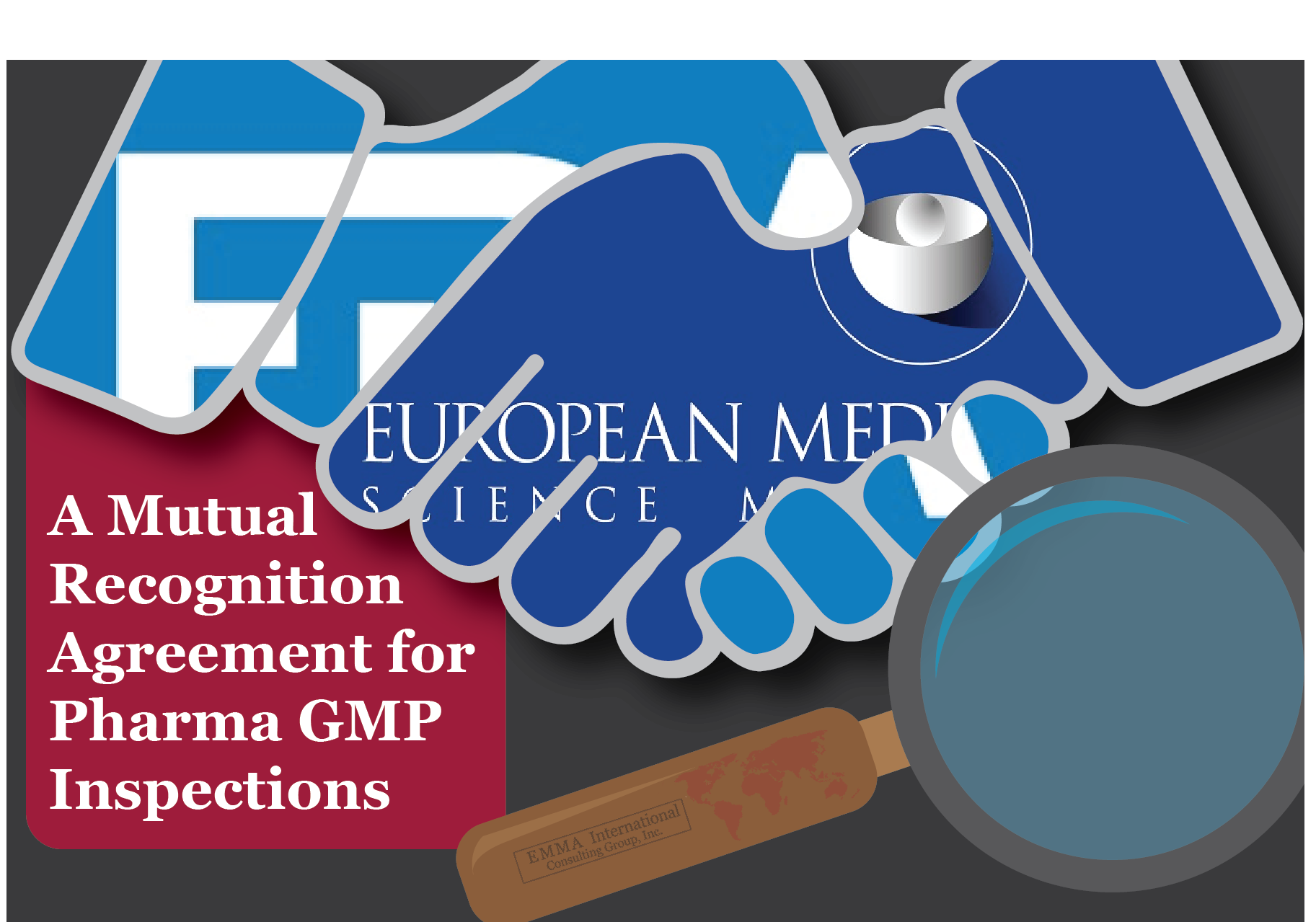The European Medicines Agency (EMA) and the United States FDA have fully implemented the Mutual Recognition Agreement beginning July 11, 2019. This agreement allows the European member states and the FDA to rely on each other’s GMP inspections of pharmaceutical manufacturers.1
In June 2017, the EU commission confirmed that the US FDA has the capability to carry out GMP inspections at a level equivalent to the European Union. The FDA confirmed the capability of the following EU member states to carry out GMP inspections equivalent to the level of FDA:2
Austria, Croatia, France, Italy, Malta, Spain, Sweden, United Kingdom, Czech Republic, Greece, Hungary, Romania, Ireland, Lithuania, Portugal, Belgium, Denmark, Finland, Latvia, Estonia, Poland, Slovenia, Bulgaria, Cyprus, Luxembourg, Netherlands, Germany and Slovakia which as confirmed on 11th July 2019.
The mutual recognition agreement will help reduce redundancies in GMP inspections. In other words, the EU member states will not duplicate inspections conducted by the FDA and Vice a Versa. However, both have the right to conduct inspections in each other’s territories at any time. 2
Under this MRA, pharmaceutical companies can stop import testing of their products provided that the product was manufactured in the US with proper controls. However, each batch/lot should be accompanied by a batch certificate (in alignment with the WHO certification scheme on the quality of medicinal products) issued by the manufacturer certifying that the product complies with requirements of the marketing authorization and signed by the person responsible for releasing the batch/lot.2
Currently, the products that are covered under this MRA are:
- Marketed finished pharmaceuticals for human use in various pharmaceutical dosage forms such as tablets, capsules, ointments, and injectables, including:
- Medical gases;
- Radiopharmaceuticals or radioactive biological products;
- Herbal (botanical) products if classified as medicinal products;
- Homeopathic products.
- Marketed biological products:
- Therapeutic biotechnology-derived biological products;
- Allergenic products.
- Intermediates
- Active pharmaceutical ingredients or bulk drug substance.
Veterinary products, human vaccines, and plasma-derived products are not included within the scope of this agreement, but their inclusion will be considered in the coming years. This MRA is currently under full implementation and new product categories will be considered to be added to the scope of this MRA.2 We will keep you posted on all new updates in this space.
In the meantime, if you need help with your GMP compliance, contact us at 248-987-4497 or email us at info@emmainternational.com.
1RAPS (July 2019) US and EU Fully Implement Mutual Agreement on GMP Inspections retrieved on 08/07/2019 from https://www.raps.org/news-and-articles/news-articles/2019/7/us-and-eu-fully-implement-mutual-agreement-on-gmp?utm_source=MagnetMail&utm_medium=Email%20&utm_campaign=Focus%20on%20Pharma:%20July%20(copys
2European Medicines Agency (July 2019) Questions & Answers on the impact of Mutual Recognition Agreement between the European Union and the United States as of 11 July 2019 retrieved on 08/07/2019 from https://www.ema.europa.eu/en/documents/other/questions-answers-impact-mutual-recognition-agreement-between-european-union-united-states-11-july_en.pdf






